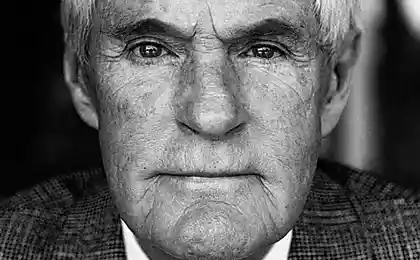153
Time: Manage or Obey?
When minutes are faster than seconds and longer than a year, when there are few days, but an hour is enough, when it seems that all the time against you and life flies past you with rapid speed, do not worry, just get your ace out of your sleeve - apply a few rules of time management!
But what is our time worth? Maybe all our worries about his deficit are in vain? And trying to control it is empty fiction? There is one parable that will help answer this question. By labor, trade, and usury, the miser has accumulated three hundred thousand dinars. He had land and buildings, and he had many riches. Then he decided that he would spend one year in entertainment, living for his own pleasure, and then decide what his future would be.
But as soon as he finished counting his money, the Angel of Death appeared before him to take his life. The miser tried to convince the Angel with all sorts of arguments, but he remained adamant. Then the man said,
- Give me three days, and I will give you a third of my property.
The angel refused and pulled the miser again to take her away. Even for all his wealth, he would not give a man a day of life.
Then the miser said,
- I beg you, let me go a little, let me just write a few words.
This time the Angel made this one concession, and the man wrote in his own blood, “Man, do not lose your life.” I couldn't buy an hour for three hundred thousand dinars. Make sure you understand the value of the time you have.”
Maybe it's really priceless. The ancient Romans already had stone slabs in their houses, on which time ran. What is the time when it appeared, and what are its properties – these questions humanity has been asking itself for many centuries. Man was able to create all modern technical developments, which we are happy to use, began to explore the cosmos and other planets, but the answer to the question “what is time”, so still found and could not!
There are different visions of the nature of time. Some argue that it is objective and absolute, others, on the contrary, believe in its illusory existence only because of human reason.
What do we need time for? To know the speed of the train from point A to point B, and to understand when you will arrive at your destination, to know that it is time to study, work or rest, to grow up and no longer be naughty like a child? Yeah, sure. But most importantly, without time we will not find psychological comfort. After all, the division of our life into periods – years, months, days, hours, seconds – was invented deliberately, because a weak human being is not able to perceive “eternity” in his consciousness.
Time to manage... time Many people complain about the lack of time: I did not have time, I do not have time! Doctors called it the “Manager’s Syndrome” and it is one of the major diseases of our century.
However, no one takes time seriously. Who, for example, can say how many hours he spent working, reading last month, how much he ate the TV or the road, and how many hours he was simply lost, and why? But you want to do everything, so a few amazing secrets of time management will come to the rescue with their simplicity and at the same time complexity!
Surprisingly, the first rules of time management were formulated by Plato in his work The State. He considered the ideal schedule as follows: 6 hours should be taken to sleep, 6 hours to work, 6 hours to divine leisure, including reading and music, and 6 hours to hygienic procedures - gymnastics, cleaning, etc. That's so simple! But unfortunately, not very relevant. Modern methods of time management are much more pedantic and diverse. Anyone can choose the one that suits him, whether it is the D. Eisenhower matrix or the B. Franklin pyramid.
For “gourmets” there are sweeter techniques, for example, the “tomato” technique. Francesco Cirillo. He created his method as a student when he realized that the main problem of his failure was the loss of concentration. Then he wondered if he could work without being distracted by the little things around him for at least 10 minutes. The judge was a kitchen timer made in the form of a tomato. That's how the technique got its name. Its essence is quite simple: write down all the tasks in descending order on a separate sheet that you need to perform during the day. Choose the first, start the timer for 25 minutes and work all this time until the timer does not work, mark the task on the list with a cross, then take a short break - 5 minutes, and then work again according to this scheme until we finish the job.
An unusual idea based on self-organization and endurance. Here is how the author of the technique himself assessed it:
It was humiliating, but the first time I lost. But the idea caught my eye. And by training day in and day out, I was able to learn successfully, and then work on that system. Another system for gourmets is Alan Lackain’s “Swiss cheese” method, described in detail in his book The Art of Keeping Up.” The author calls people to a happy, creative and interesting life, on this principle and builds his method of time management. Life flows, everything changes, and above all our desires.
Imagine the situation, you have a great plan, the main task of which is, say, washing windows. But maybe you want to do something less important, or relax and go to the movies, or just draw stripes across dirty windows. Obviously, with regard to the case, you are not guided by the principle of “do it now”, but prefer to postpone it. Alan Lacaine writes:
Delay! This is one of the main obstacles that everyone faces when trying to solve short-term and long-term goals. Instead of letting procrastination take over you, why not fight back?
And if you imagine that your main goal was to learn how to ride a horse, but you learned that the instructor takes lessons much more than you can afford. In this case, leaving the main task may be a better solution than trying to implement it.
But the main principle of this method is not to quit without even trying to realize a dream, no! The point is that a man will never be good at doing what he does not want or at some point cannot do. So you need to be able to move things one level down in your hierarchy of goals. Think about which goal would be more appropriate as a result of changing priorities, and try to do it now. Traditional teachings about time management stand on 3 pillars:
The first is to set a goal. If there is no purpose in life, saving time loses its meaning. This applies to both individuals and organizations. The days when it was common to live one day and not think about the future are long gone.
The second is to create a plan that will help you move towards your goal.
The third is the most active and involves constant movement. Go to the goal until it obeys you. Confucius once said, “The journey of a thousand miles begins with one step.”
In recent years, some experts on new lifestyles advise to forget about plans, as they lead to stress, but start small. Every day, you need to set yourself a task that must be done.
But no matter what advice you listen to, at the heart of each is one main and universal secret – self-organization and a sincere desire to carry out the tasks. And it does not matter what scenario a person chooses, how he builds his relationship with time: he controls it or obeys it. The important thing is to live in time. To live in movement, in change, in pleasure, just to live. Do not look for time, but look for yourself in time.
Source: www.cablook.com/mirror/vremya-upravlyat-ili-podchinyatsya/
But what is our time worth? Maybe all our worries about his deficit are in vain? And trying to control it is empty fiction? There is one parable that will help answer this question. By labor, trade, and usury, the miser has accumulated three hundred thousand dinars. He had land and buildings, and he had many riches. Then he decided that he would spend one year in entertainment, living for his own pleasure, and then decide what his future would be.
But as soon as he finished counting his money, the Angel of Death appeared before him to take his life. The miser tried to convince the Angel with all sorts of arguments, but he remained adamant. Then the man said,
- Give me three days, and I will give you a third of my property.
The angel refused and pulled the miser again to take her away. Even for all his wealth, he would not give a man a day of life.
Then the miser said,
- I beg you, let me go a little, let me just write a few words.
This time the Angel made this one concession, and the man wrote in his own blood, “Man, do not lose your life.” I couldn't buy an hour for three hundred thousand dinars. Make sure you understand the value of the time you have.”
Maybe it's really priceless. The ancient Romans already had stone slabs in their houses, on which time ran. What is the time when it appeared, and what are its properties – these questions humanity has been asking itself for many centuries. Man was able to create all modern technical developments, which we are happy to use, began to explore the cosmos and other planets, but the answer to the question “what is time”, so still found and could not!
There are different visions of the nature of time. Some argue that it is objective and absolute, others, on the contrary, believe in its illusory existence only because of human reason.
What do we need time for? To know the speed of the train from point A to point B, and to understand when you will arrive at your destination, to know that it is time to study, work or rest, to grow up and no longer be naughty like a child? Yeah, sure. But most importantly, without time we will not find psychological comfort. After all, the division of our life into periods – years, months, days, hours, seconds – was invented deliberately, because a weak human being is not able to perceive “eternity” in his consciousness.
Time to manage... time Many people complain about the lack of time: I did not have time, I do not have time! Doctors called it the “Manager’s Syndrome” and it is one of the major diseases of our century.
However, no one takes time seriously. Who, for example, can say how many hours he spent working, reading last month, how much he ate the TV or the road, and how many hours he was simply lost, and why? But you want to do everything, so a few amazing secrets of time management will come to the rescue with their simplicity and at the same time complexity!
Surprisingly, the first rules of time management were formulated by Plato in his work The State. He considered the ideal schedule as follows: 6 hours should be taken to sleep, 6 hours to work, 6 hours to divine leisure, including reading and music, and 6 hours to hygienic procedures - gymnastics, cleaning, etc. That's so simple! But unfortunately, not very relevant. Modern methods of time management are much more pedantic and diverse. Anyone can choose the one that suits him, whether it is the D. Eisenhower matrix or the B. Franklin pyramid.
For “gourmets” there are sweeter techniques, for example, the “tomato” technique. Francesco Cirillo. He created his method as a student when he realized that the main problem of his failure was the loss of concentration. Then he wondered if he could work without being distracted by the little things around him for at least 10 minutes. The judge was a kitchen timer made in the form of a tomato. That's how the technique got its name. Its essence is quite simple: write down all the tasks in descending order on a separate sheet that you need to perform during the day. Choose the first, start the timer for 25 minutes and work all this time until the timer does not work, mark the task on the list with a cross, then take a short break - 5 minutes, and then work again according to this scheme until we finish the job.
An unusual idea based on self-organization and endurance. Here is how the author of the technique himself assessed it:
It was humiliating, but the first time I lost. But the idea caught my eye. And by training day in and day out, I was able to learn successfully, and then work on that system. Another system for gourmets is Alan Lackain’s “Swiss cheese” method, described in detail in his book The Art of Keeping Up.” The author calls people to a happy, creative and interesting life, on this principle and builds his method of time management. Life flows, everything changes, and above all our desires.
Imagine the situation, you have a great plan, the main task of which is, say, washing windows. But maybe you want to do something less important, or relax and go to the movies, or just draw stripes across dirty windows. Obviously, with regard to the case, you are not guided by the principle of “do it now”, but prefer to postpone it. Alan Lacaine writes:
Delay! This is one of the main obstacles that everyone faces when trying to solve short-term and long-term goals. Instead of letting procrastination take over you, why not fight back?
And if you imagine that your main goal was to learn how to ride a horse, but you learned that the instructor takes lessons much more than you can afford. In this case, leaving the main task may be a better solution than trying to implement it.
But the main principle of this method is not to quit without even trying to realize a dream, no! The point is that a man will never be good at doing what he does not want or at some point cannot do. So you need to be able to move things one level down in your hierarchy of goals. Think about which goal would be more appropriate as a result of changing priorities, and try to do it now. Traditional teachings about time management stand on 3 pillars:
The first is to set a goal. If there is no purpose in life, saving time loses its meaning. This applies to both individuals and organizations. The days when it was common to live one day and not think about the future are long gone.
The second is to create a plan that will help you move towards your goal.
The third is the most active and involves constant movement. Go to the goal until it obeys you. Confucius once said, “The journey of a thousand miles begins with one step.”
In recent years, some experts on new lifestyles advise to forget about plans, as they lead to stress, but start small. Every day, you need to set yourself a task that must be done.
But no matter what advice you listen to, at the heart of each is one main and universal secret – self-organization and a sincere desire to carry out the tasks. And it does not matter what scenario a person chooses, how he builds his relationship with time: he controls it or obeys it. The important thing is to live in time. To live in movement, in change, in pleasure, just to live. Do not look for time, but look for yourself in time.
Source: www.cablook.com/mirror/vremya-upravlyat-ili-podchinyatsya/























